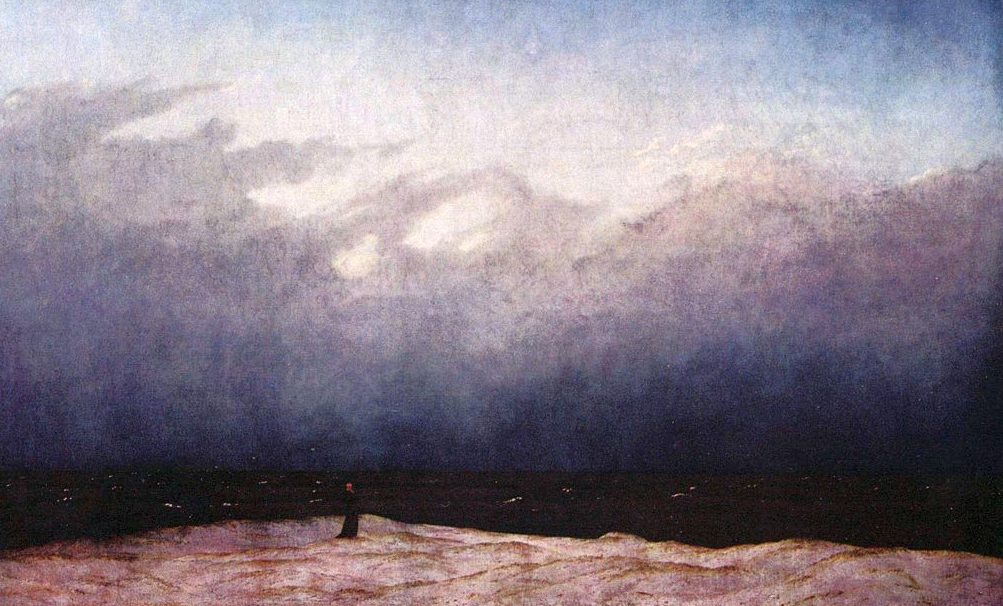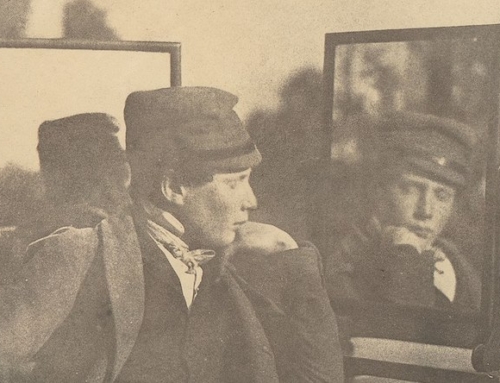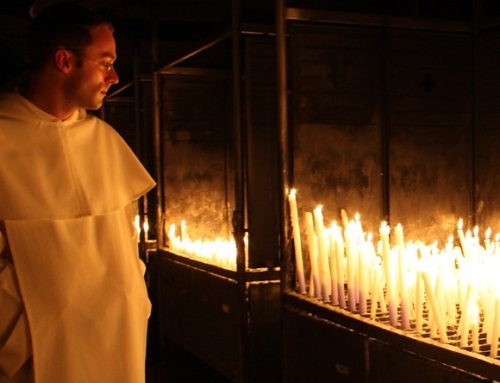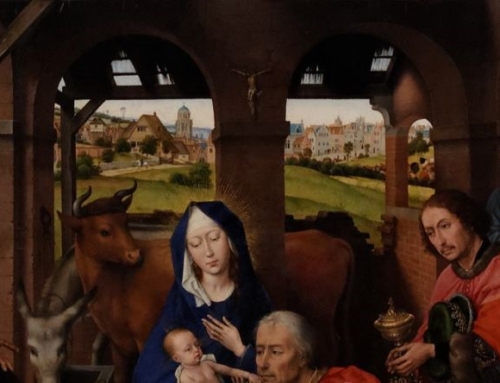I recently came across a line by Samuel Johnson that struck me as having a particular relevance to Dominican friars: “A man unconnected is at home everywhere; unless he may be said to be at home nowhere.” As mendicants, we are “unconnected” to a place; we give up a stable home for the sake of serving the Church. But Johnson’s statement holds for Christian life generally: in one sense we are at home everywhere; in another we are at home nowhere.
This paradox is particularly apparent in the life of Mary. This Saturday, we will celebrate the Annunciation, when God came and made his home among men, and Mary became his physical dwelling place for nine months. But as she became the home of Jesus, she became rather homeless herself.
What do I mean? First, Joseph, naturally suspecting infidelity, sought to avoid taking Mary into his home. Next, when Mary heard that she would conceive the Christ and gave her assent, she also learned of her cousin Elizabeth’s pregnancy. So Mary, in the early months of her own pregnancy, left her own home behind to visit Elizabeth. Nine months later, when Jesus was to be born, Mary and Joseph were on the road, and a stable had to do for a maternity ward. Finally, before they could settle into their new life and raise this child, they had to flee to Egypt. In short, as soon as Mary offered herself as a home for God, she lost any sort of stability in her own living situation. She became a dwelling place without a place to dwell.
St. Paul asks the Corinthians, and by extension all those “living in the faith,” “Do you not realize that Jesus Christ is in you?” (2 Cor. 13:5). If this is true—that we, somewhat like Mary, can spiritually carry the Lord in ourselves—we should expect to see in our own lives some of the instabilities that Mary experienced. Caryll Houselander, in The Reed of God, describes the repercussions of God’s life in us in this way: “We shall be haunted by a nostalgia for divine things, by a homesickness for God which is not eased in this world even by the presence of God.” Those days come when we realize that nothing in the world around us—nobody, nothing—can make us ultimately happy. Because we find in ourselves a lack, an aching void, a homesickness, we are led to discover in a deeper way that our final happiness can only be God. This lack burns with a purging flame. We realize how often we have sought our final happiness in passing things, which brings us to mourn for our sins.
A would-be follower of Jesus told him that he would go with him wherever he went, and Jesus replied, “Foxes have dens and bird of the sky have nests, but the Son of Man has nowhere to rest his head” (Lk. 9:58). Jesus was warning of the cost of following him: in accepting, as Mary did, the promise of God’s presence, we accept a sort of homelessness. So even as we sigh—“When will I come to the end of my pilgrimage and enter the presence of God?”—we become a home, a dwelling place of the Lord.
✠
Image: Caspar David Friedrich, Monk by the Seashore.







